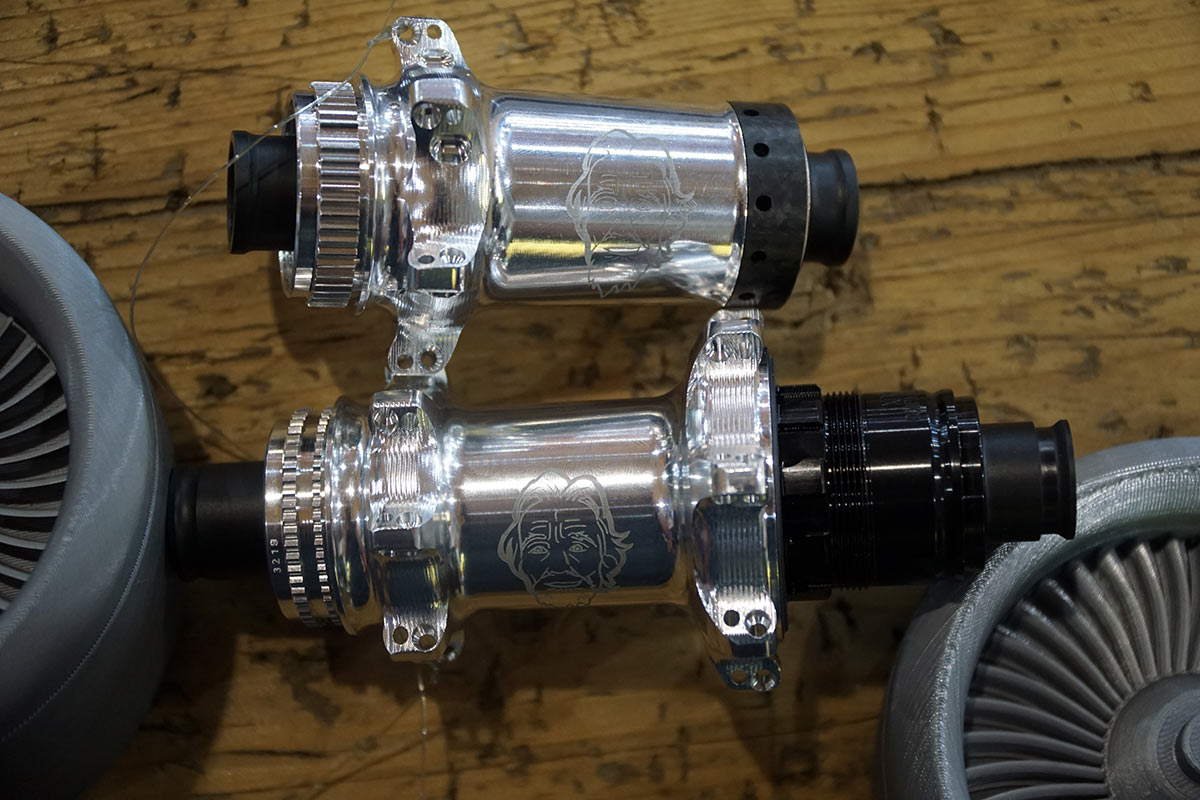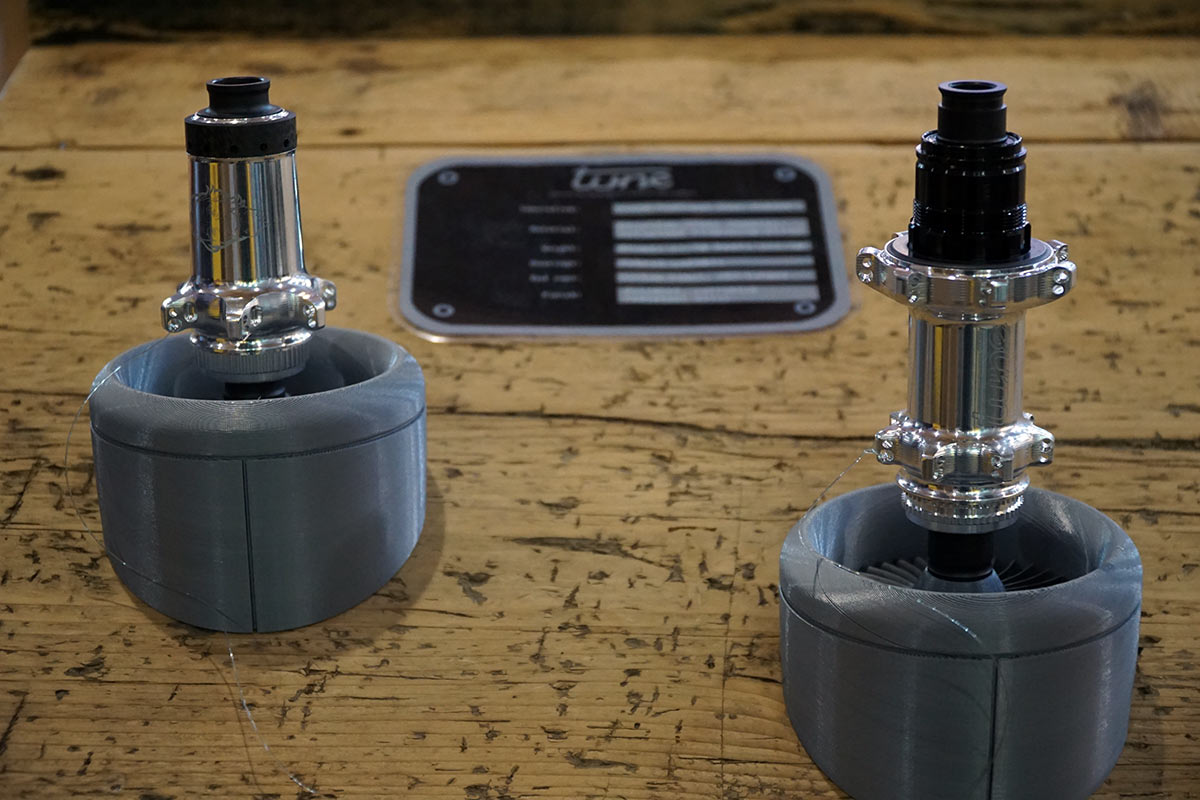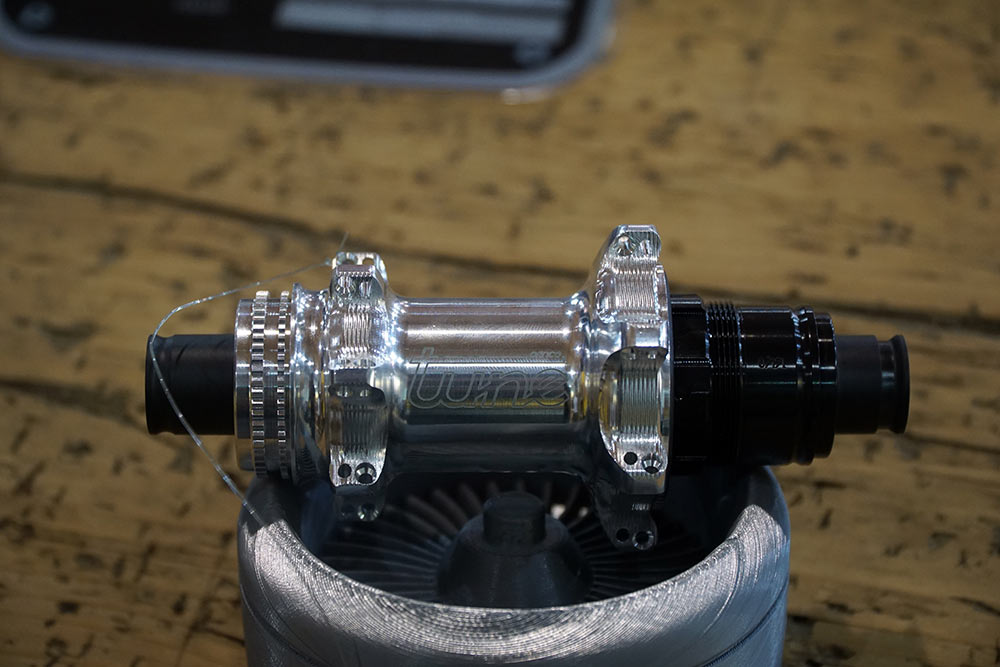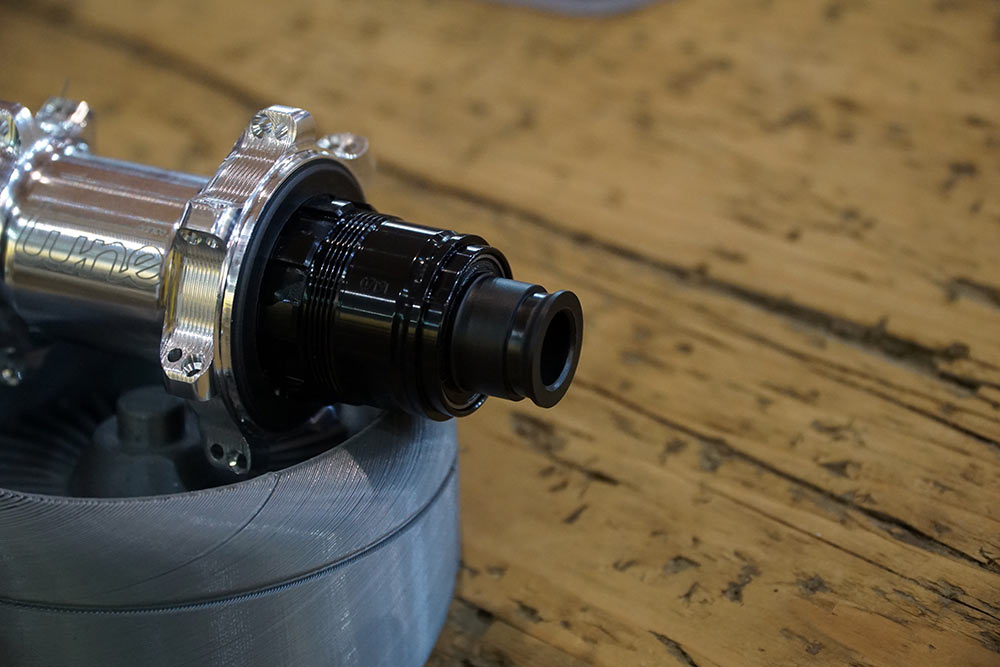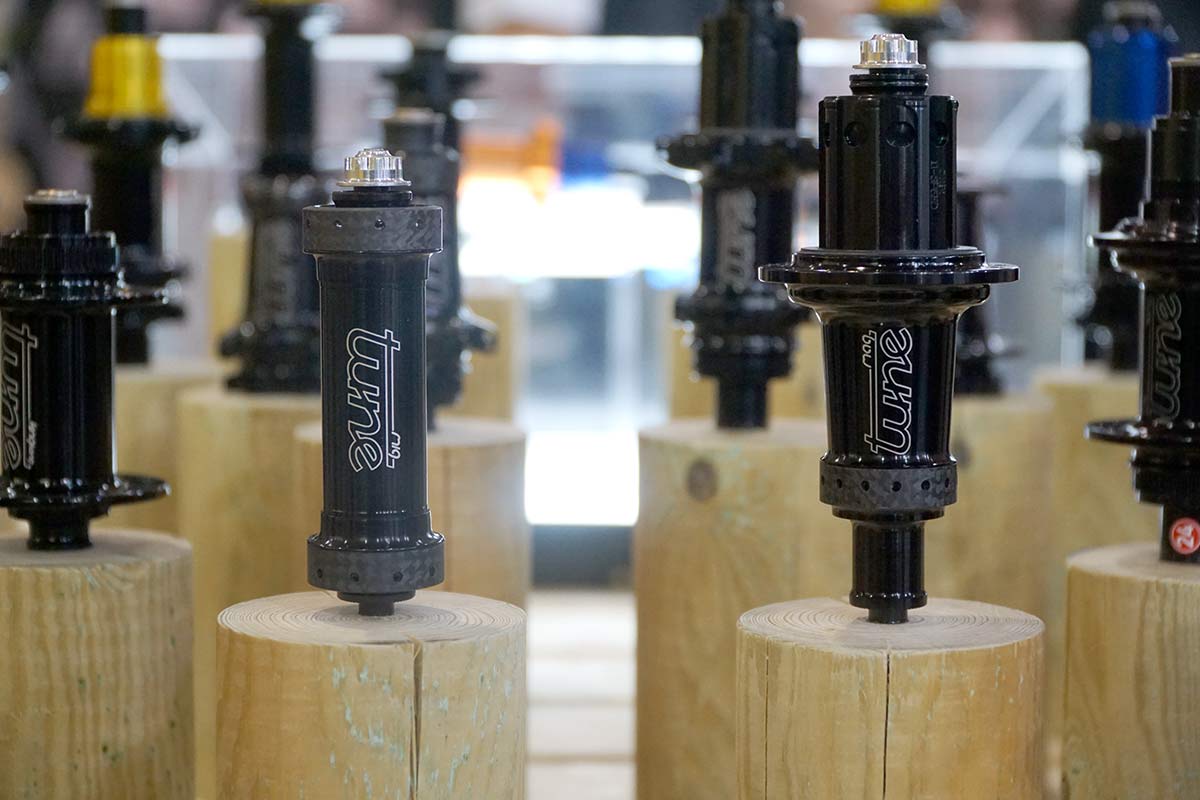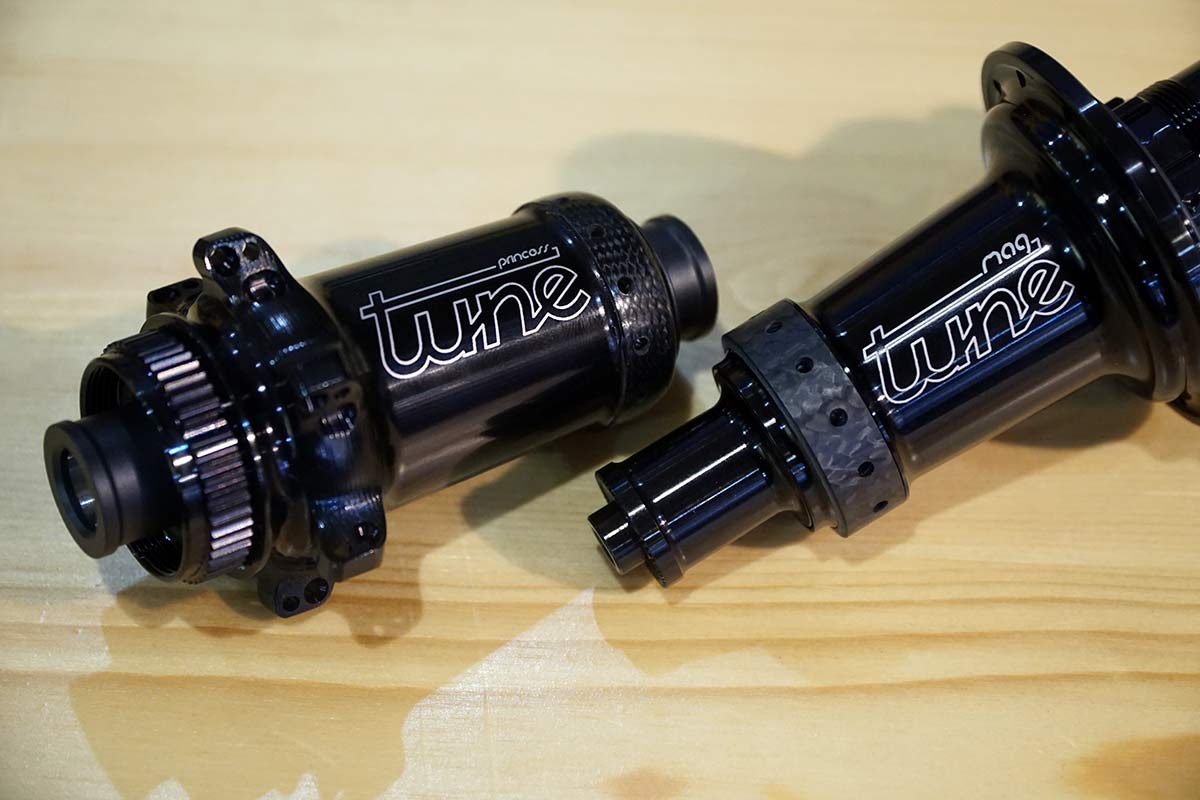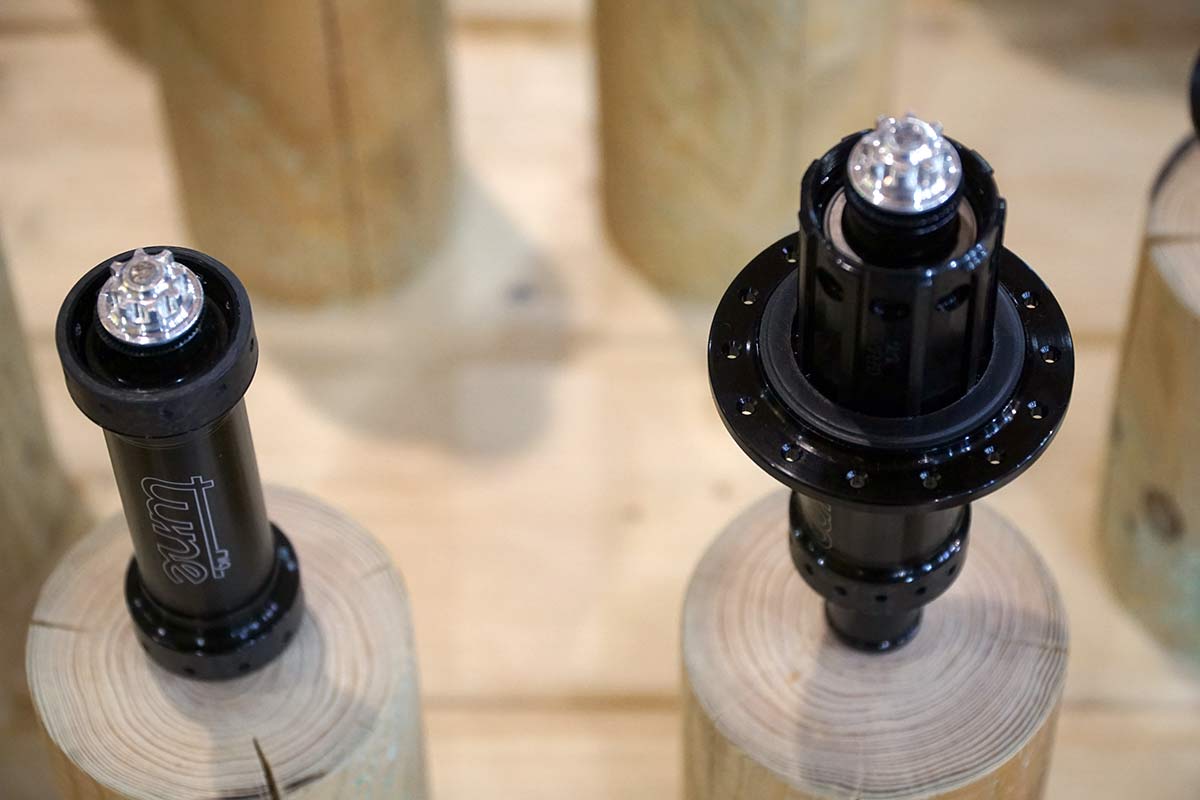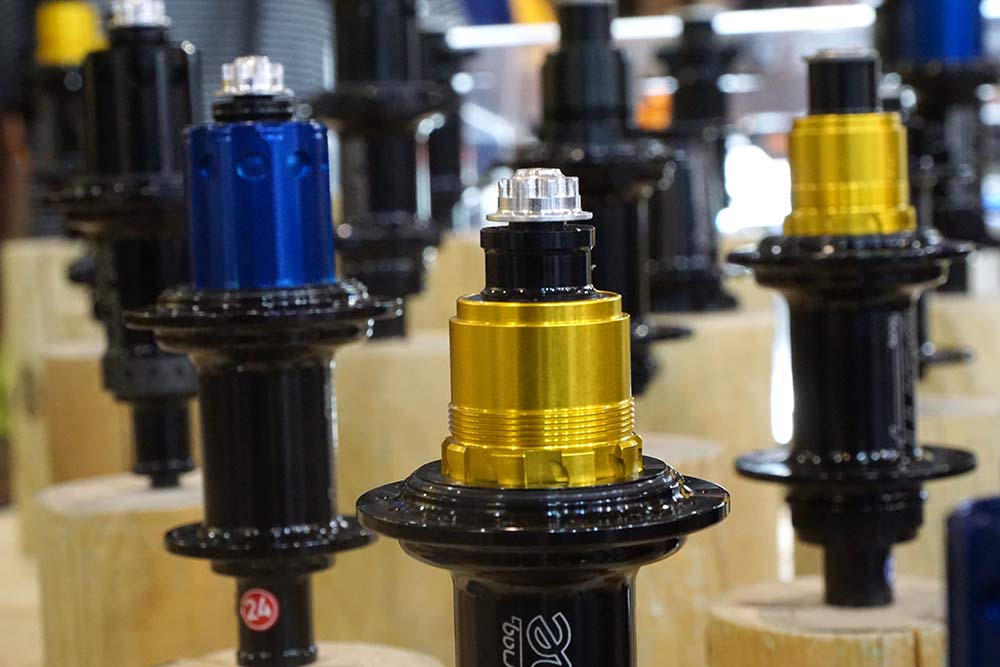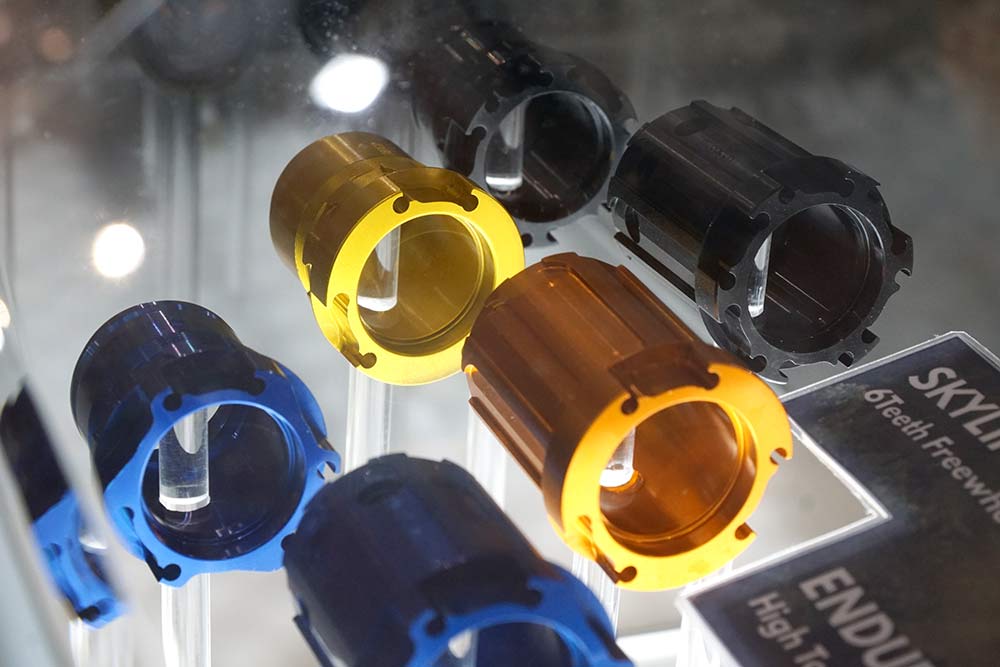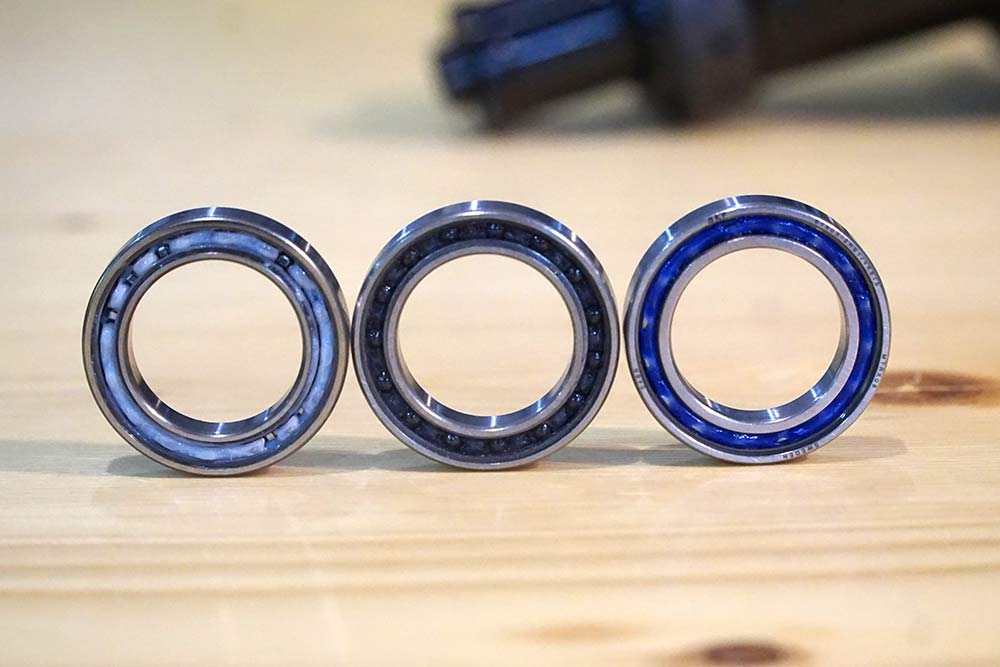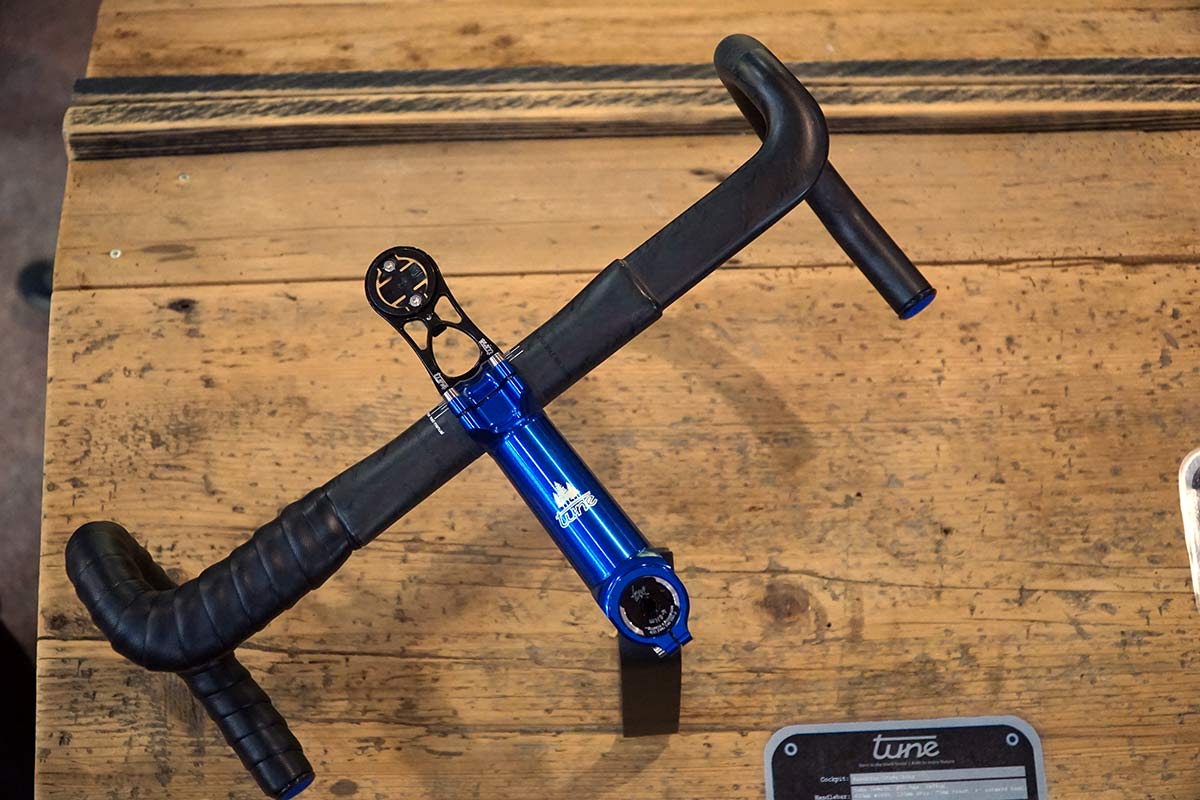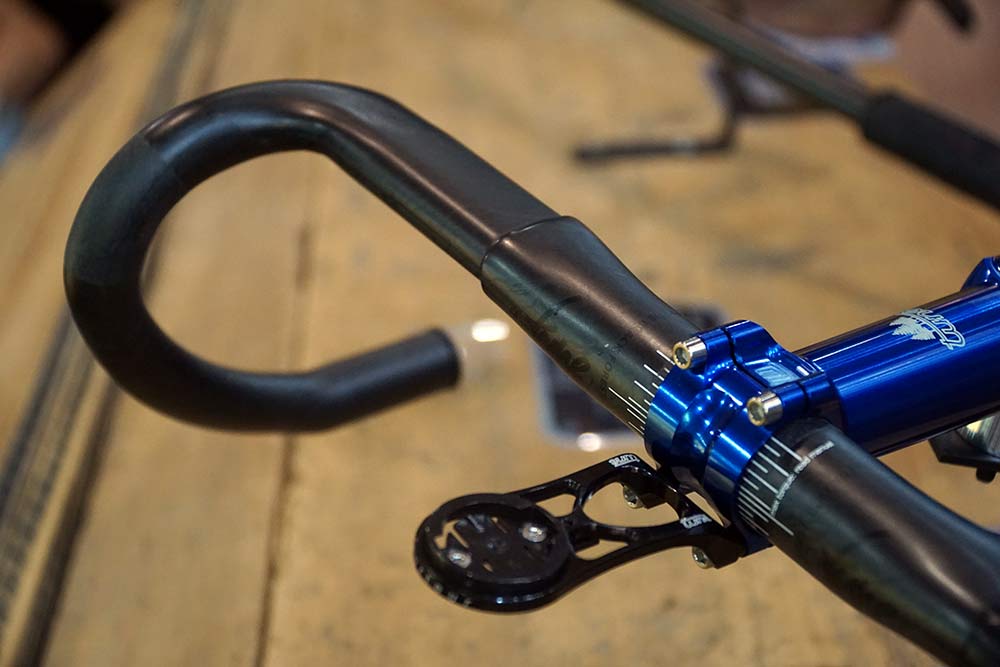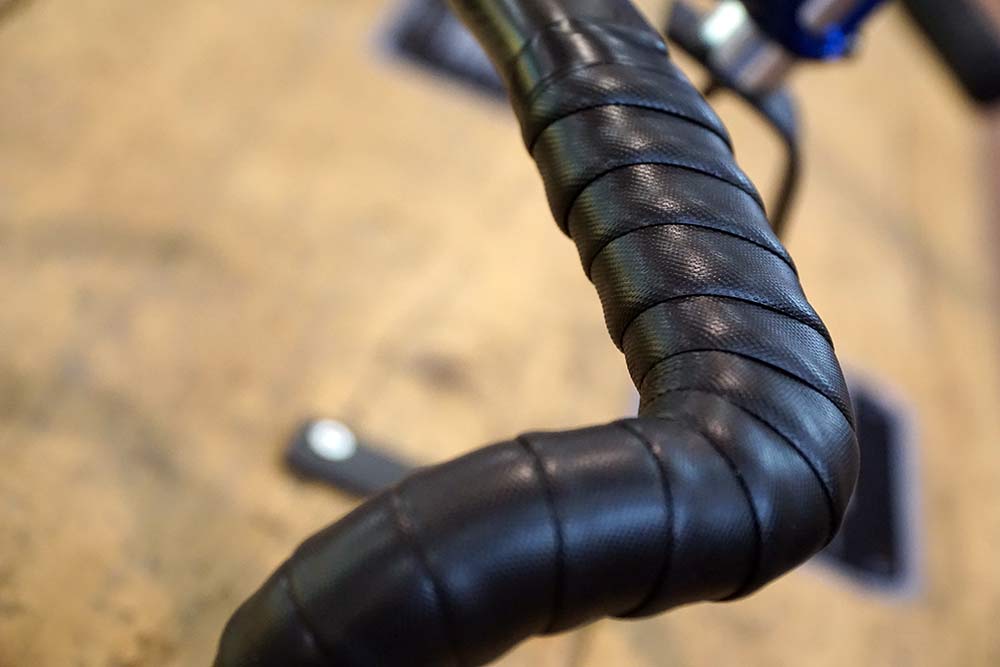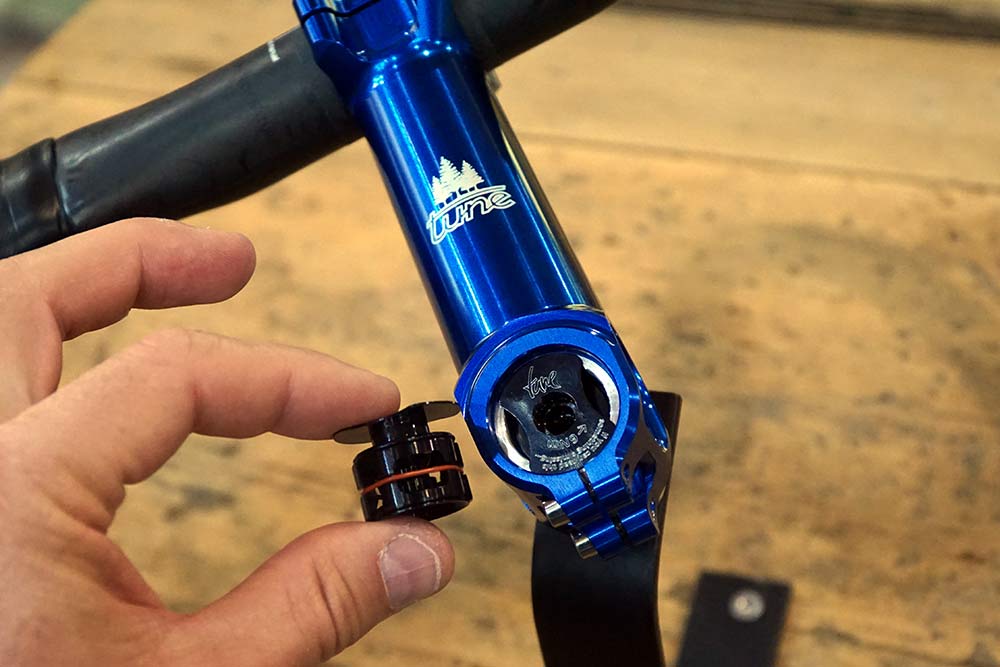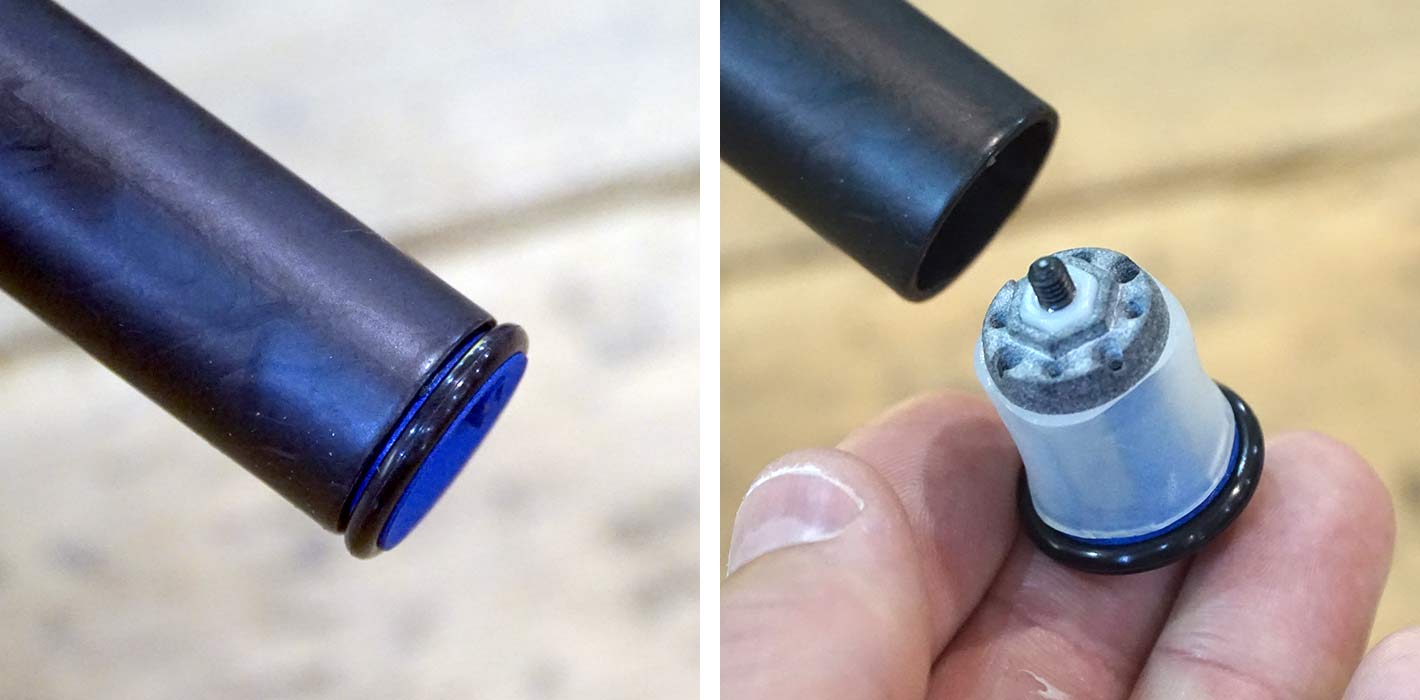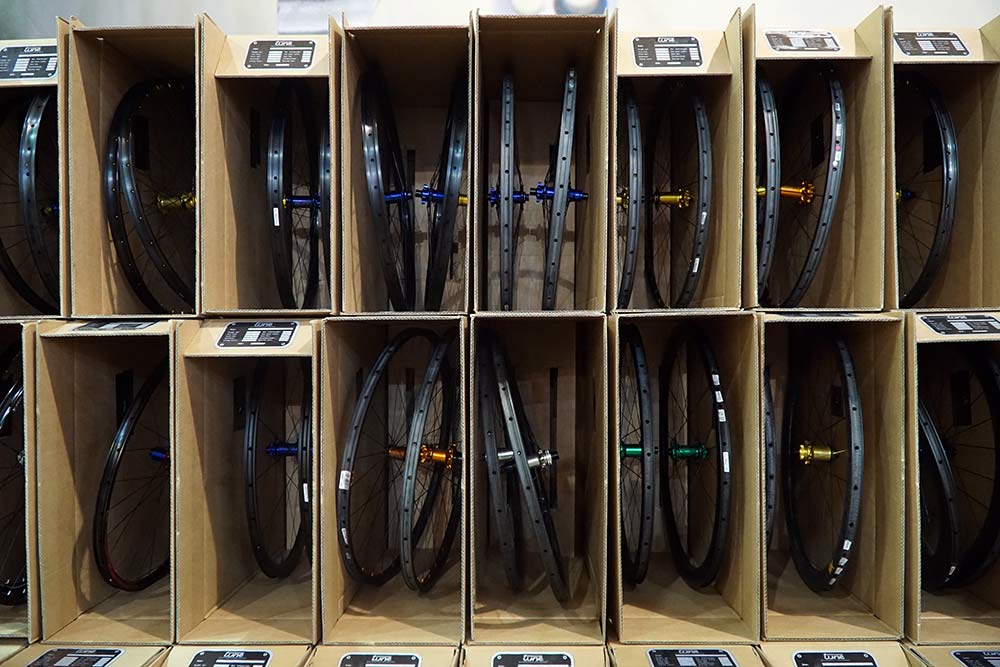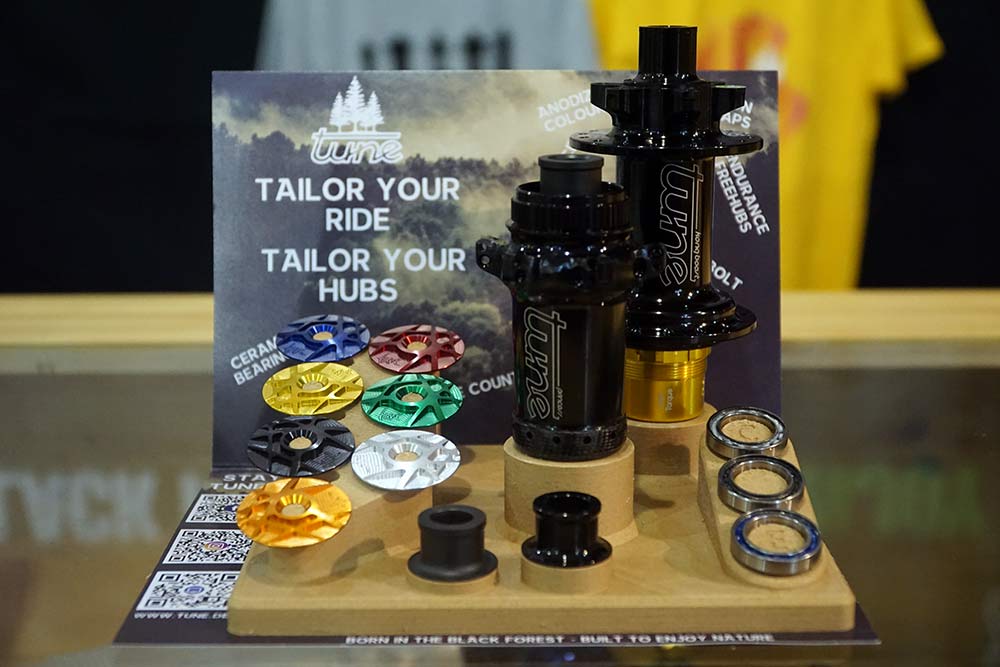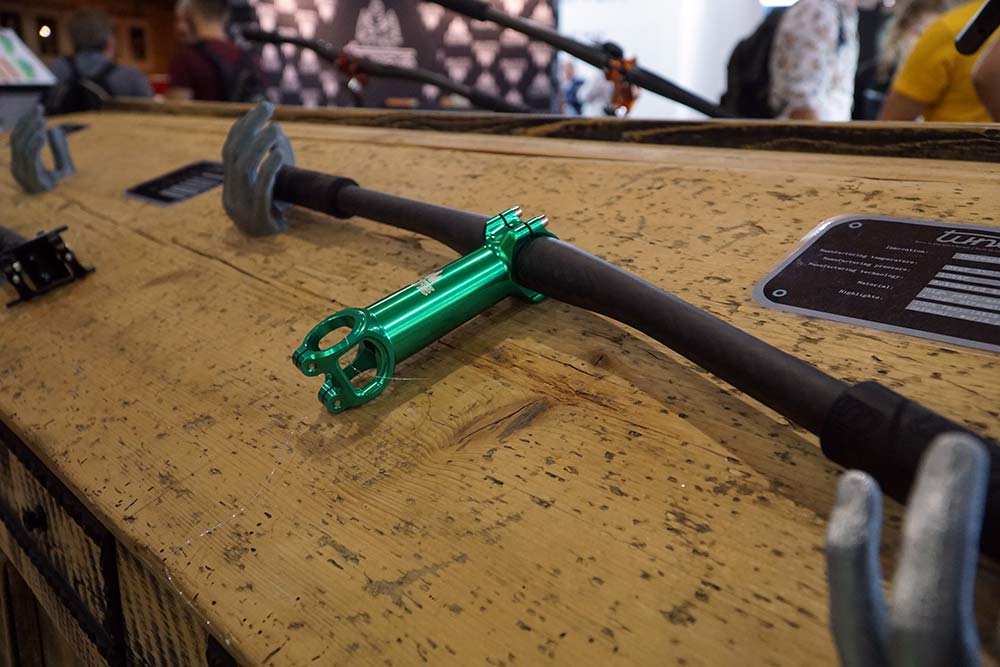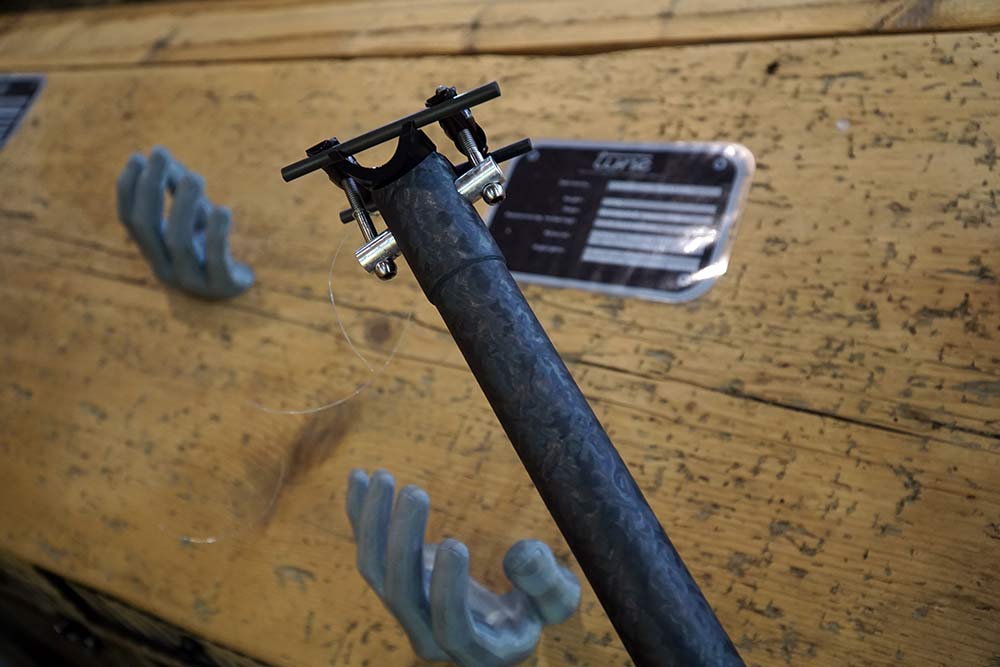Nestled in Germany’s Black Forest, Tune Components is celebrating 30 years of making some of the world’s lightest bicycle components by…making even lighter bicycle components! This year’s Eurobike booth had some impressive prototypes and experiments, but perhaps more interesting were how these are already being applied to current products!
Tune Princess Uli are the world’s lightest disc brake hubs?
A few weeks prior to the show, we found the Tune Princess Uli front hub. Now, there’s a rear hub to match, and more details on the construction and materials.
They’re able to get a sub-70g front hub and 162g rear hub by using an ultra-light aerospace alloy that’s in modern Airbus aircraft. It’s 10% less dense than their regular 7000-series alloy, which saves a few grams, yet they say it’s just as strong. Oh, and it’s 4x more expensive.
Carbon end caps are machined in house from medical grade carbon tubing that costs about $500/meter, but has a similar strength as alloy. Notice the groove of material removed from the Centerlock brake mounts…because marginal gains.
Ceramic bearings will come standard, as they should – These hubs will probably have close to a four digit price tag, and only five complete sets are made so far. One is already sold. Go ahead and start saving for when you can get yours early next year.
More Tune hub upgrades & improvements
The Skyline hubs get a ton of updates, but first a quick refresher: Skyline are the direct-pull spoke versions, and Prince is the rear, Princess is the front. Mig refers to their rim-brake hubs, which are shown directly above.
The Mig Skyline front road hub gets an oversized 17mm axle, same size as their mountain bike hubs, so it’s super stiff. Across the entire lineup, Tune offers virtually every standard out there, including the latest SuperBoost and 20mm they axle DH standard.
All skyline hubs get a molded carbon ring (right) in place of the wound carbon from before (left). It’s a more reliable construction, and it can be made separately then bonded onto the hub as opposed to being wound onto the hub shell during assembly.
All Skyline hubs also get new machined carbon freehub flange seals that use a labyrinth design to keep water out. Because it’s lighter than rubber.
They now have three different freehub body options, each available in XD/XD-R, Shimano and Campy versions. Each option is color coded:
Blue is the lightest option for standard hubs and gets 3 pawls with 27 points (15º) of engagement. Black (new) has 6 pawls to get 54 POE (7.5°), for folks that want a quicker response.Gold (new) is their Endurance model and sticks with just 3 pawls (27 POE, 15º) but keeps a little material throughout it for heavier/stronger riders or those looking for a burlier system for off road riding.
You now also have three bearing options. Left to right: Regular, ceramic (1g lighter), and endurance bearings with an injected solid lubricant that won’t let water in.
Ultralight cockpit upgrades
The new Tune Geweih is a 185g ergonomic handlebar aimed at the endurance road and gravel set. The ends have a slight 4º flare, finishing off the 125mm drop and 75mm reach. 400mm width only, unfortunately. Update: Actually, the Geweih will be available it seems in 400mm, 420mm & 440mm widths.
The 185g weight is especially impressive considering the shaping done to keep a consistent hand transition once the tape is added.
Speaking of, they have new high-density PU bar tape that’s a nice, comfy 3.5mm thick and weighs in at 186g for a set.
Sometimes you cut grams but compromise on performance. Not so with the new XPANDA steerer plug compression cap. Their prior version had a silicone ring that could shrink in cold weather. So they made a new one that’s all alloy save for the small retention rubber band. Weight is just 6.9g, they say it’s safe for carbon, and the truly brilliant part is the top flange that won’t let it fall down into the steerer tube.
Last up, the Fuse Plug is a new, mostly plastic end cap piece that uses an oversized silicone band that’s wider than your bar end’s diameter. So, if your bike falls over, it won’t hit and potentially crack the carbon bar. They use a plastic body and plastic screw to keep the weight to just 12.9g for the pair. Mountain bike versions also available.
Wheels get more or less customized
Wheels are now built based on the type of rider and terrain, rather than just to get specific sizes and options in the catalog. Some things are preset in the spec, like Endurance freehubs and bearings on gravel and mountain bike wheels, or ceramic bearings on their Skyline wheels. All wheels are tubeless ready (except tubulars, obvi), but you can still customize if you want. Basically, they took the most common upgrades and features for a particular discipline and just make the wheels that way now, so it’s easier to get what you want, even if you didn’t know you wanted those upgrades.
For retailers, they have this new counter display that shows off a typical hubset (the shop can choose if they want road or MTB hubs) along with the different colors, end caps (carbon, anyone?) and bearings. Not cool enough? The base is made from 3D printed wood.
Yes, wood.
Tune’s experimental projects are the future
This handlebar is carbon with thermoplastic resin that can be melted out so that it’s fully recyclable. Typical carbon fiber resins can’t be melted out, but with this one, you could re-use the carbon fibers to make something else.
The seatpost is flax and carbon, which uses a more natural material. They say this reduces the total CO2 costs of producing the parts, which means more green (or Black?) forests for us to ride in!
Congratulations, Tune, we can’t wait to see what the next 30 years brings!
